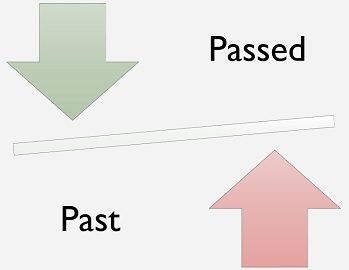

While both describe an object or person that has gone by or beyond a certain point, “moved past” is used to describe the physical movement, while “passed” can describe a broader range of situations. Is “moved past” the same as “passed”? No, “moved past” and “passed” are different.Still, it is not limited to physical movement and can be used to describe a broader range of situations.

Can “passed” be used to describe physical movement? Yes, “passed” can be used to describe physical movement.It is used to describe physical movement. Can “moved past” be used to describe the passage of time? No, “moved past” is not typically used to describe the passage of time.The proposal passed with a majority vote.The deadline passed without completion.

Here are 10 example sentences using “passed”:

“Moved” usually refers to physical movement, while “passed” often refers to a situation or event that has been completed or approved. Both words describe movement or progression but have different meanings and connotations. “Moved” and “passed” cannot be used together in the same sentence. For example, you could say, “the year has passed,” “the bill passed in the Senate,” or “she passed her driving test.” The word “passed” is more general and can describe a broader range of situations. It can also describe the passage of time, the passage of laws, or the completion of an exam. Still, it is not limited to physical movement. On the other hand, the word “passed” is used to describe an object or person that has gone by or beyond a certain point. For example, you could say, “the train moved past the station” or “the parade moved past us.” The phrase “moved past” describes an object or person in motion and is now located beyond a certain point. It is usually used to describe a physical movement. The phrase “moved past” describes an object or a person that has gone by or beyond a certain point. This article will explore the difference between the two phrases and when to use them correctly. One example is the phrases “moved past” and “passed.” While both terms describe moving from one place to another, they are not interchangeable and have distinct meanings. Moved Past or Passed: Understanding the DifferenceĮnglish is a complex language many phrases and words are often used interchangeably, leading to confusion.


 0 kommentar(er)
0 kommentar(er)
